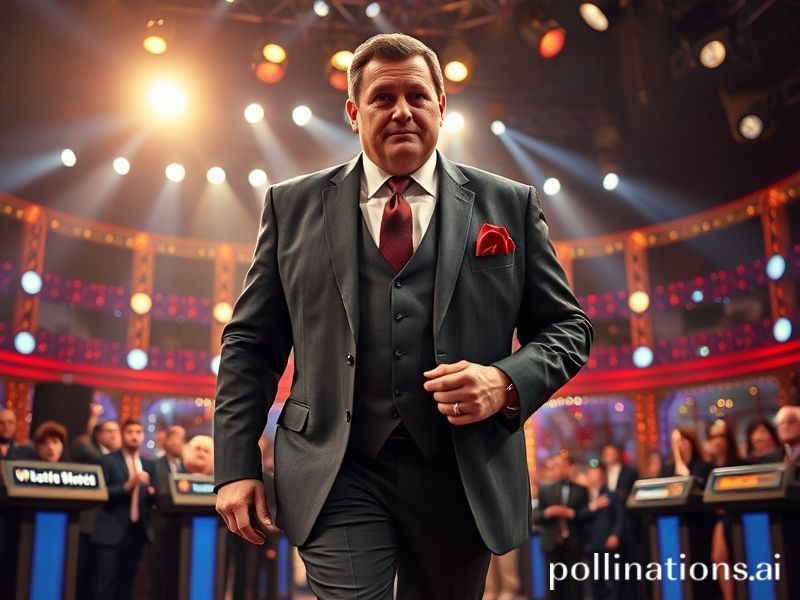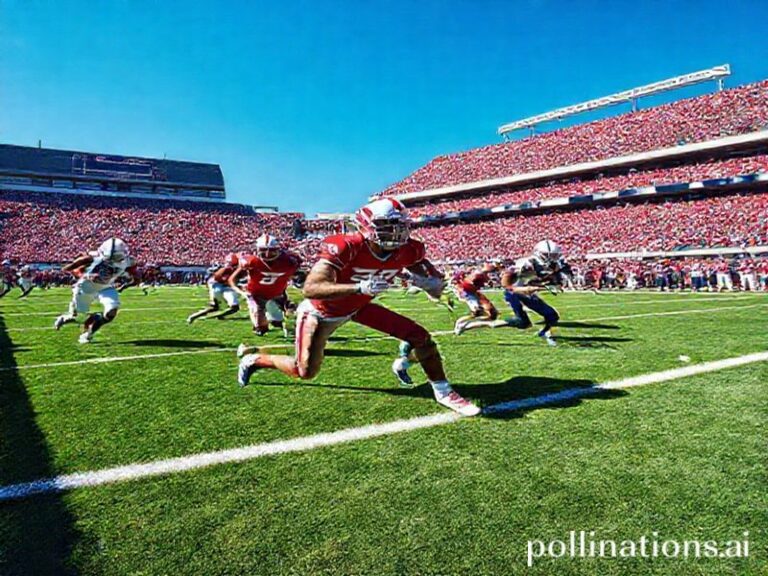Mark Labbett: The Global Trivia Tyrant Exporting British Brains and Bruised Egos
Mark Labbett: The Global Colossus of Trivia Who Makes the World Feel Inadequate
By the time the satellite feed crackles into life in a windowless studio in Cardiff, a dozen time zones are already wincing. From Lagos to Lima, insomniacs and commuters alike are watching a 6’7″ British man in an off-the-rack suit annihilate another hopeful soul on *The Chase*. Mark Labbett—professional quizzer, occasional export, and living monument to the fact that knowledge is no longer power but a spectator sport—has become the planet’s most efficient confidence-shredder. Somewhere in Jakarta, a civil engineer just missed the final question on the Treaty of Küçük Kaynarca and is now questioning every life choice that led him to this moment. Meanwhile, Labbett pockets another modest appearance fee and wonders what’s for dinner.
In a world where democracy sputters and supply chains snap like cheap earbuds, Labbett’s brand of merciless erudition offers a strangely comforting spectacle: the illusion that facts still matter, and that someone, somewhere, has memorized all of them. The United Nations can’t get 195 countries to agree on carbon targets, but Labbett can recite the atomic weight of seaborgium without blinking. That counts for something—if only as a reminder that human specialization has reached the point where one man’s entire personality is the periodic table.
The international appeal is oddly egalitarian. Australians cheer when he demolishes a cocky contestant; Canadians politely applaud; Germans simply nod in recognition of ruthless efficiency. Labbett has been franchised like a McDonald’s burger: Australia got its own version, the U.S. dubbed him “The Beast” and added lasers, and Germany—never knowingly under-dramatic—refers to him as *Der Bestie*, which sounds like a Wagnerian villain who eats contestants between acts. The format travels because humiliation is the one truly universal language, subtitled in real time.
Globalisation, that tired buzzword, usually conjures images of container ships and sweatshops. Yet here’s a man who exports nothing but cortisol spikes and pub-quiz trauma. His intellectual imperialism is bloodless: no tariffs, no troops, only the quiet thud of another ego hitting the studio floor. In an era when nations weaponise trade routes and water supplies, it’s almost quaint that Britain’s soft power now includes a bespectacled giant who can name every European capital faster than most people can locate Europe on a map.
Of course, the darker joke is that Labbett’s omniscience coincides with a worldwide collapse in shared reality. While he rattles off the dates of obscure Roman emperors, half the planet thinks the moon landing was staged on a Cardiff soundstage—probably the same one where he films. We’ve never known more and trusted less; Labbett is the high priest of a church nobody quite believes in anymore. His correct answers feel like relics from a pre-post-truth era, when knowing stuff wasn’t partisan. Watching him is nostalgia for a time when being right was enough, before facts required a marketing budget.
Yet even the Beast has had to adapt. In the age of deepfakes and infinite scroll, Labbett has diversified: cameos on *Celebrity Juice*, weight-loss reality shows, TikTok snippets where he reacts to teenagers baffled by cursive. The trivia colossus must now be content as trivia content. It’s the late-capitalist paradox: the more singular your talent, the more platforms you need to rent it out. Somewhere, Pythagoras is grateful he died before influencers.
At press time, Labbett is reportedly learning Mandarin, presumably so he can crush contestants in two additional dialects. The Chinese market beckons; after all, a billion more egos remain unscathed. Meanwhile, the rest of us continue googling the answers we missed, half-ashamed, half-grateful that someone is still keeping score in a world that’s lost the instructions.
In the end, Mark Labbett is less a person than a coping mechanism: proof that knowledge can still be wielded like a cudgel, even if the arena is only daytime television. He won’t fix the climate or broker peace, but for twenty-two commercial-laden minutes, he reminds us that someone, somewhere, still knows what year the Berlin Wall fell—and isn’t afraid to say it out loud.







